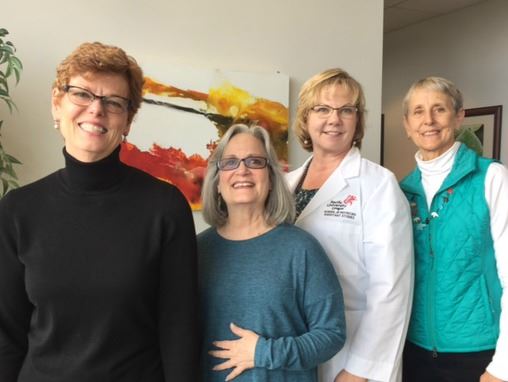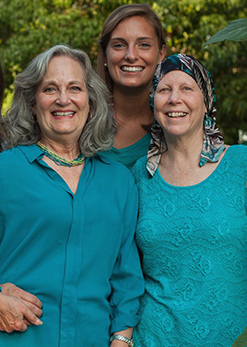

“It was really powerful having cancer survivors come speak to us. It helped me get a better idea of how life-changing ovarian cancer is,” commented one student at the Pacific University School of Pharmacy.
Another said, “While listening to the panel discussion I was really thinking about how important empathy is for us as professionals, especially when dealing with patients who are going through something as tough as cancer is. We, as pharmacists, can really make a difference in our patients’ lives if we are empathetic, listen to their concerns, and are patient when they ask us questions.”
Survivors Teaching Students ® is a program of the Ovarian Cancer Research Fund Alliance. Locally, about 20 survivors are trained to present their stories to future medical professionals in our area. These women tell their personal accounts of diagnosis and treatment with the goal of influencing how a medical, nursing, pharmacy, or other student views the disease and its impact on the patient, while also imparting vital information about the disease and its symptoms.
The STS ® volunteers speak to students about every 2 weeks during the year, telling their stories to more than 700 future medical providers annually.
“Today’s discussion has provided me with more insight into how cancer patients view their disease. The discussion is going to help me to better relate to the patients as a future medical professional,” said a Pharmacy student at Pacific. “Being able to understand what cancer patients are going through will not only make us better pharmacists, but it will translate into positive patient care outcomes.”
In conclusion, an additional student commented, “it was a huge honor to be able to hear these amazing women speak about their experiences; I was struck by how smart, capable and unbending to cancer they were, and still are. I was impacted by how they described — not so much what their pharmacist or other providers did — but the empathy they showed.”

